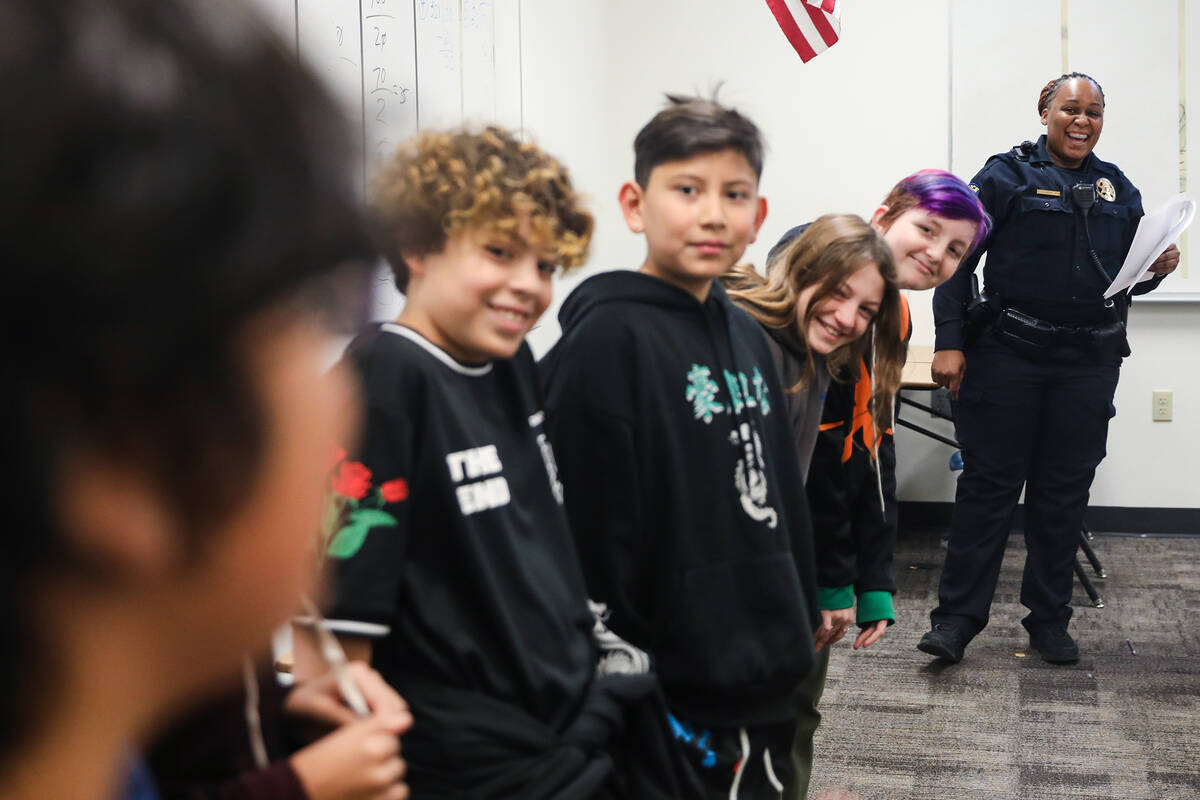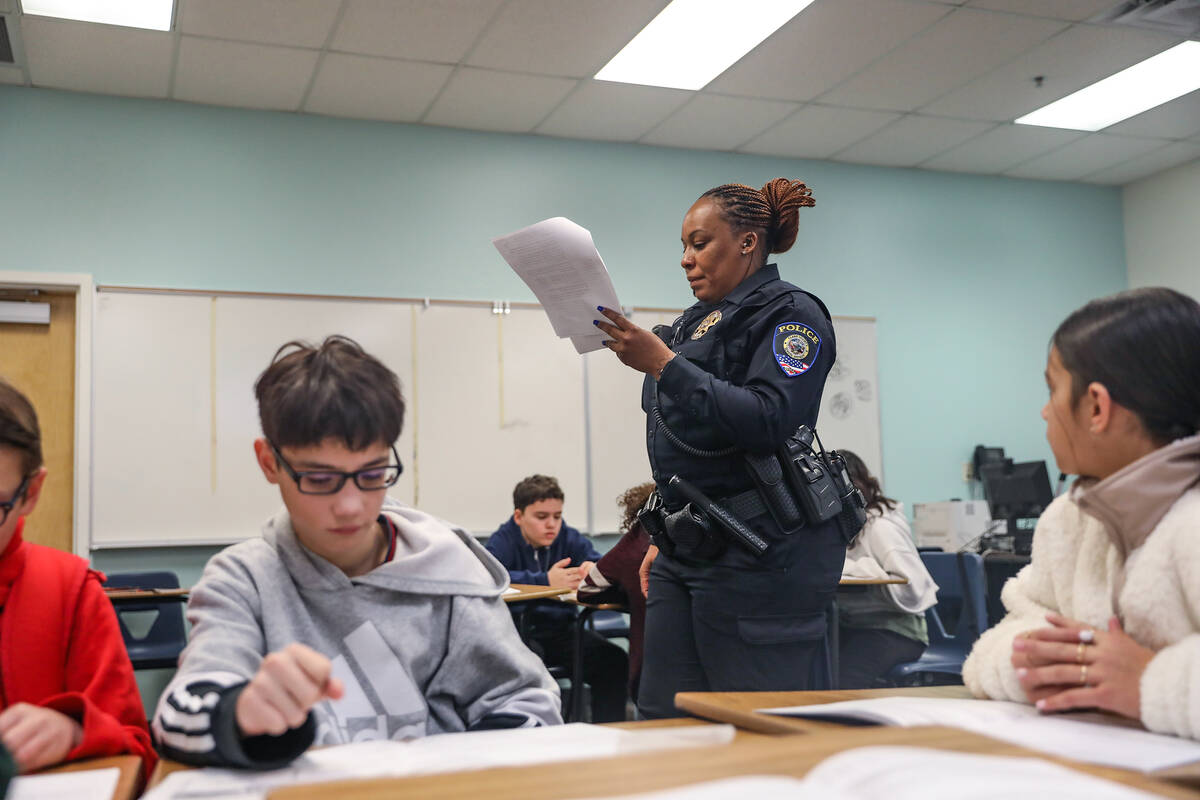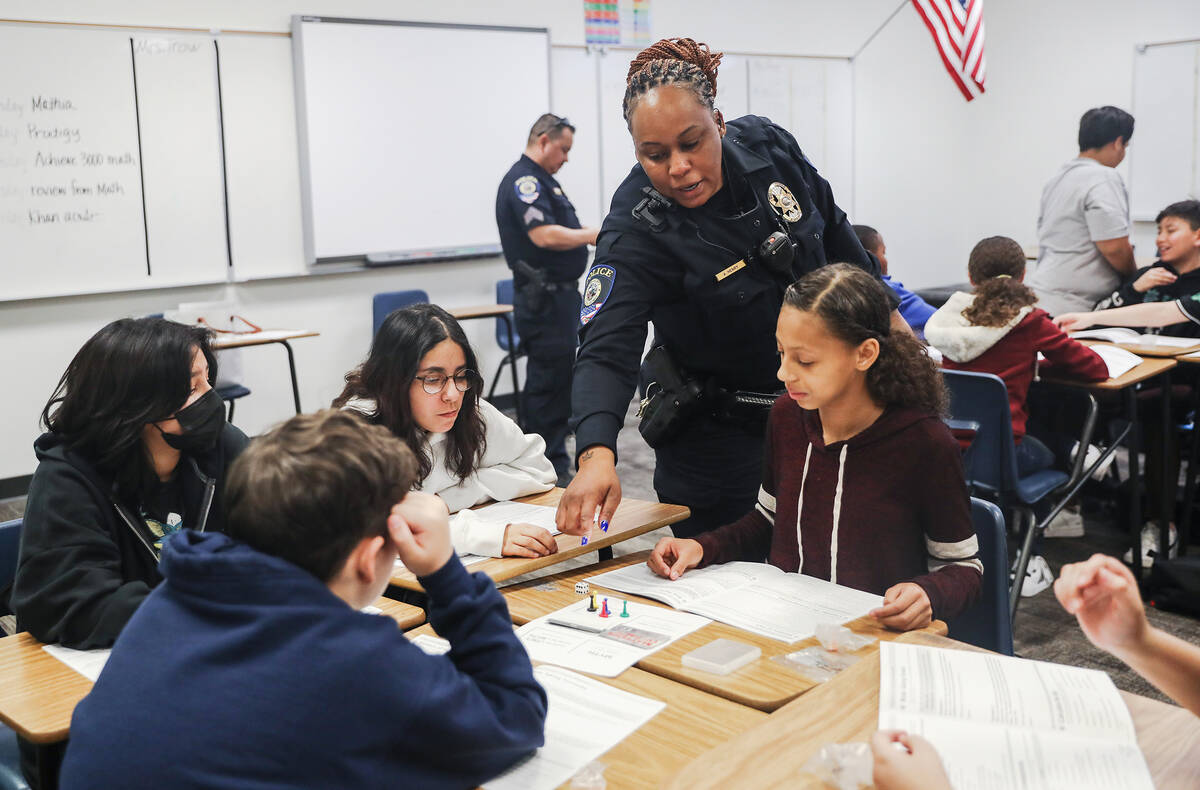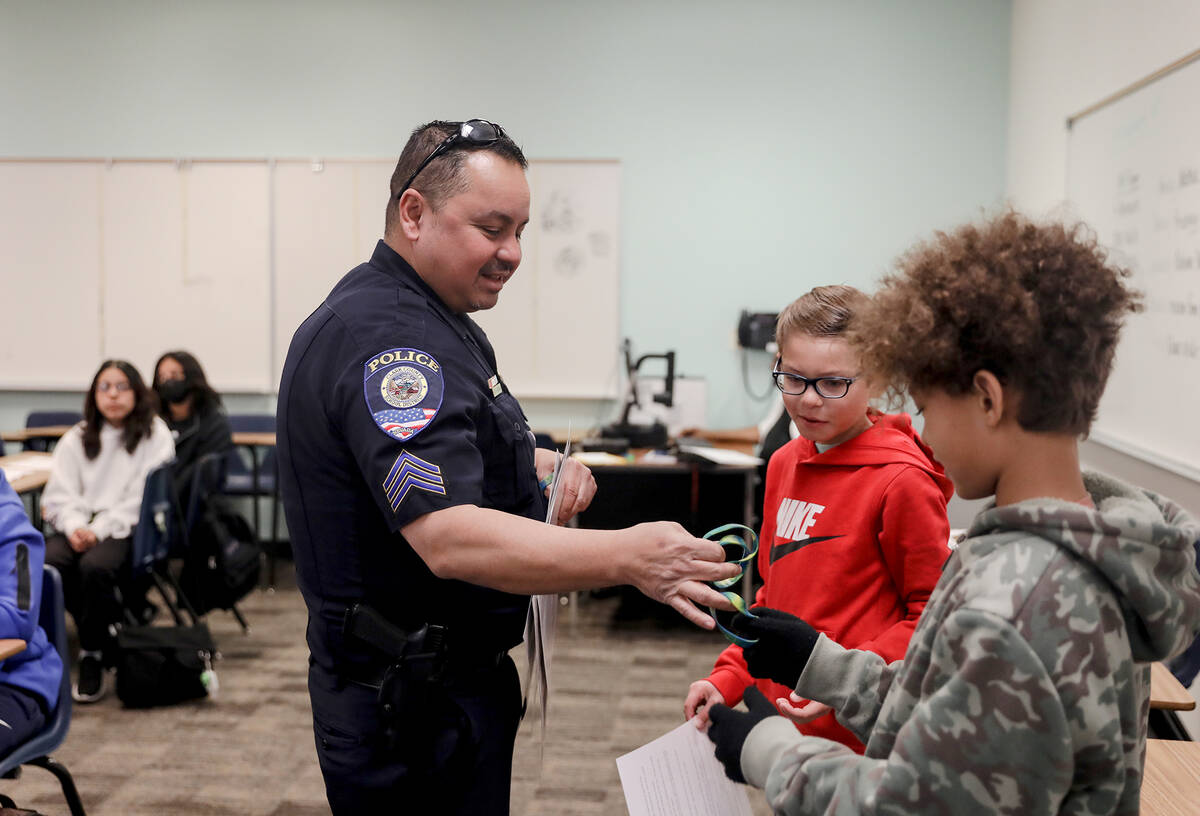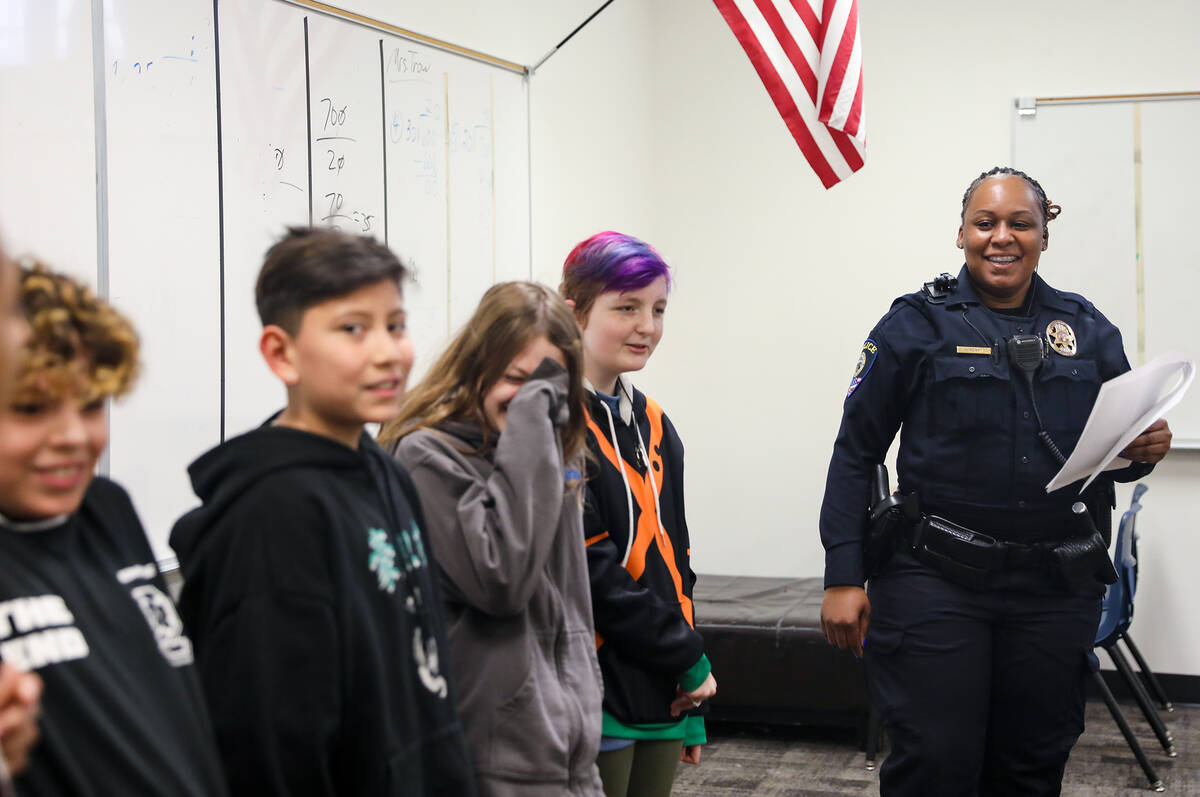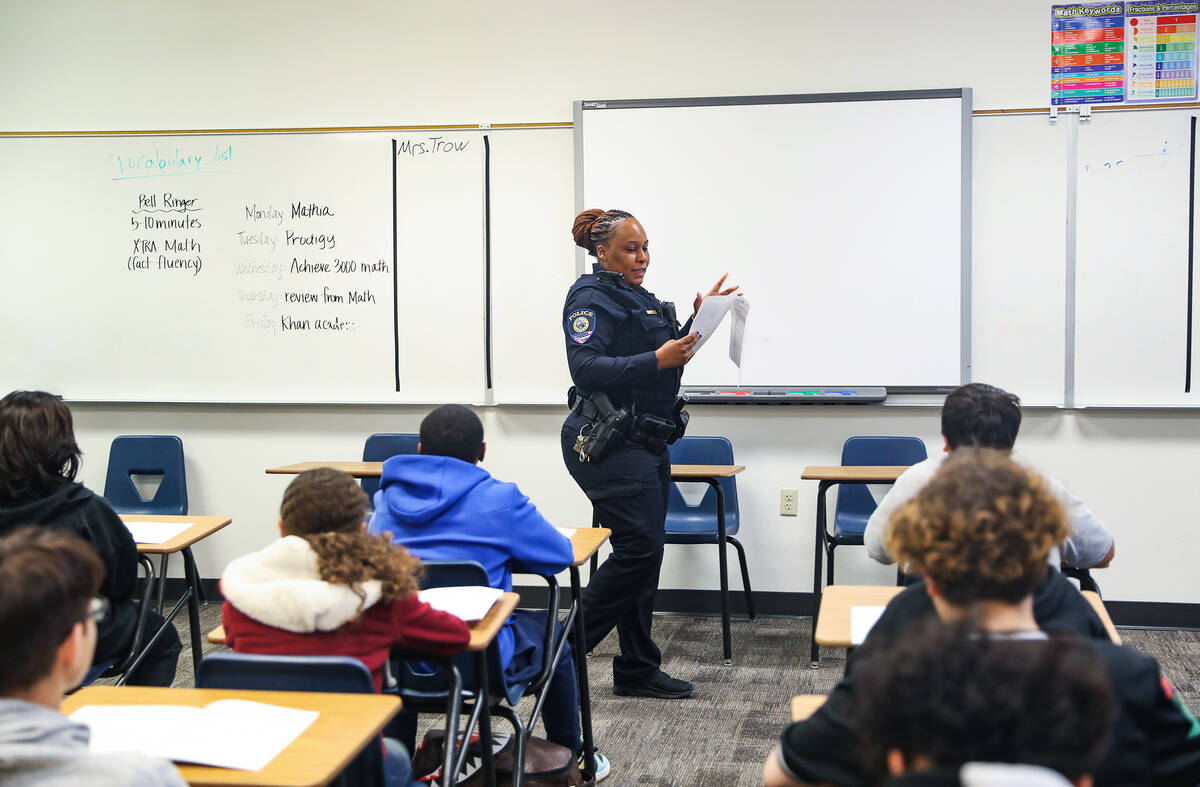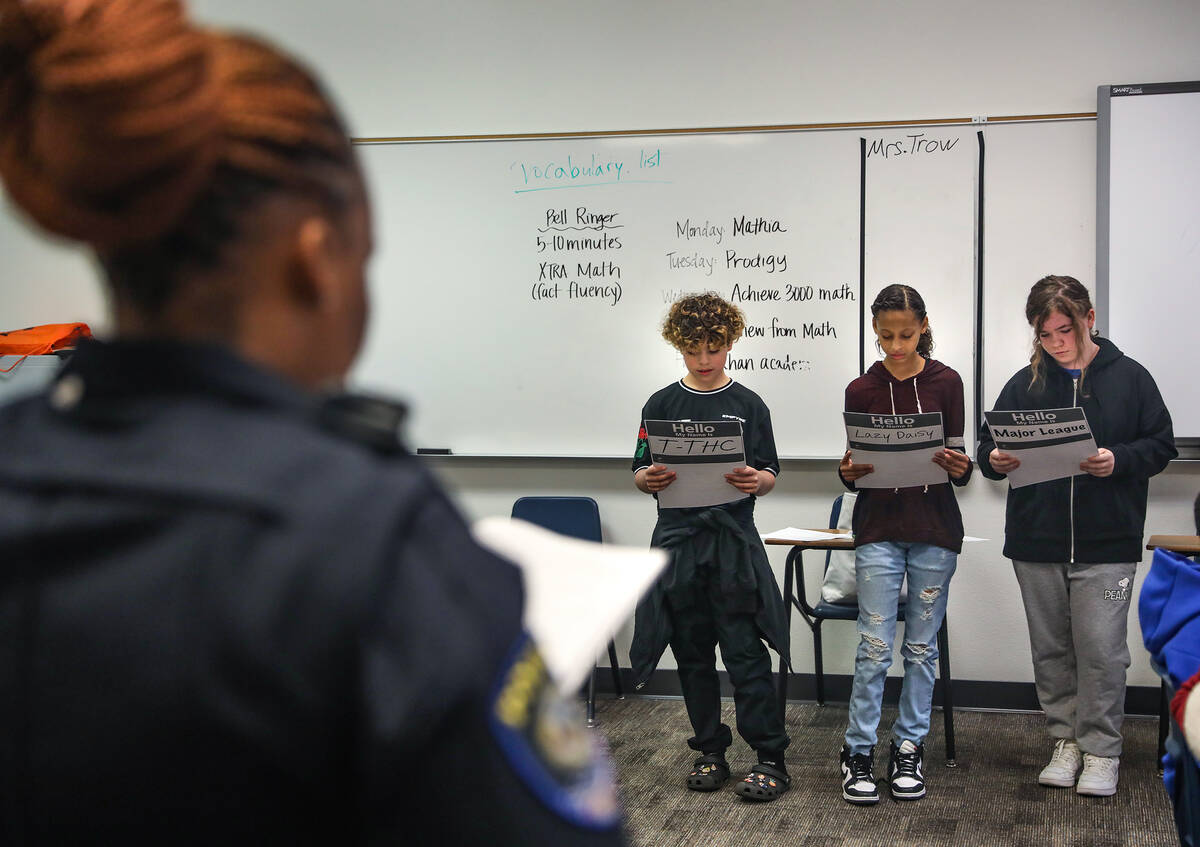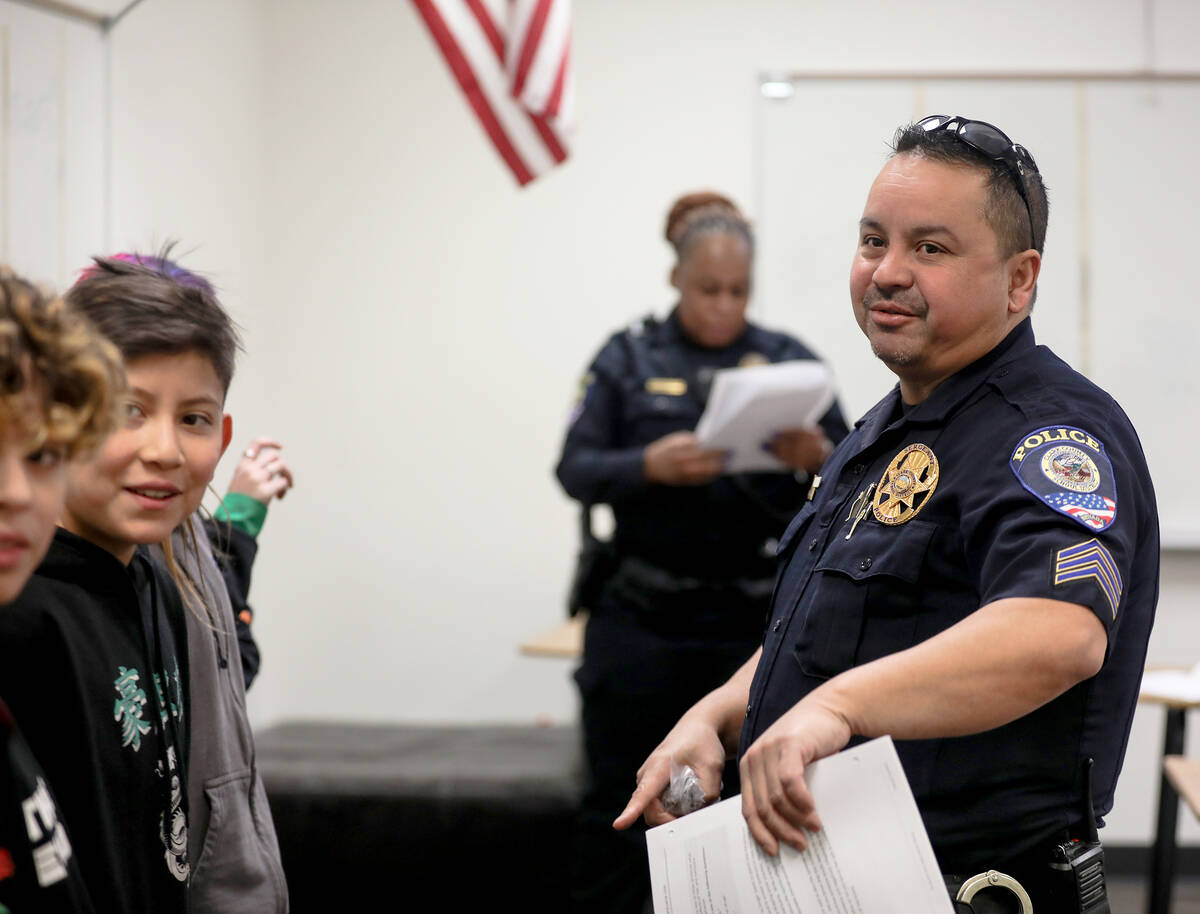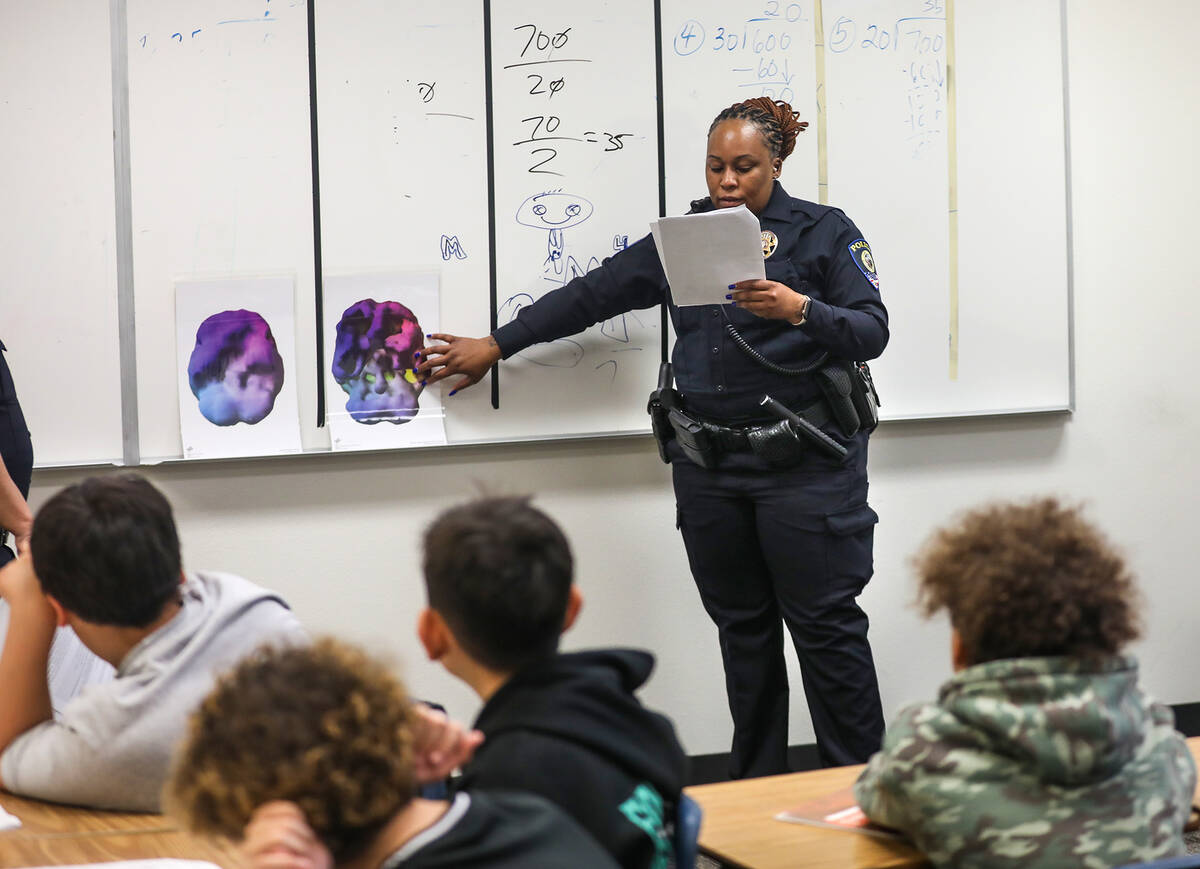‘Our officers teaching our kids’: CCSD police expand anti-drug program
Clark County School District Police Sgt. Juan Wibowo and officer Artesia Henry asked a class of sixth-graders on Wednesday why some people use recreational marijuana.
“To take off stress,” one student said.
“For the feeling of it,” another added.
During a lesson, about 20 students at Escobedo Middle School in Centennial Hills broke into small groups to decide if statements — including “marijuana is all-natural” and “marijuana is addictive” — are myth or fact.
The Clark County School District Police Department began offering an anti-drugs and violence pilot program for sixth graders last school year. It plans to continue expanding the offering to more campuses, including high schools next school year.
The 10-week Law Enforcement Against Drugs and Violence (L.E.A.D.) program consists of 45-minute lessons taught by school district police officers who come into classrooms.
“We love the fact that it’s our officers teaching our kids,” School District Police Lt. Bryan Zink said.
L.E.A.D. is a national nonprofit with curriculum for kindergarten through 12th grade students.
In Clark County, a pilot program began with five middle schools that were “very different in demographics” and in different areas of the community, School District Police Capt. Robert Mayer said.
The program has expanded to approximately nine middle schools. The goal is to get up to 15 schools by the 2023-24 school year, Mayer said.
So far, 376 students have participated at Brown Academy of International Studies, Garside Junior High School, Escobedo Middle School, Martin Middle School, Brinley Middle School, Gunderson Middle School, Cashman Middle School, Hyde Park Middle School and in Indian Springs.
“It’s a great program,” said Henry, who’s regularly assigned to Centennial High School. “I think it should be in all schools.”
At each participating school, a school administrator picks which class the program will be taught in, such as physical education, health or an elective class.
The police department is currently focusing on sixth-graders because they’re starting middle school, Mayer said, and it provides a chance to teach topics such as decision making, substance abuse prevention, suicide prevention and social-emotional learning before students get to high school.
‘We want to be proactive’
A similar program many people are familiar with — D.A.R.E. (Drug Abuse Resistance Education) — hasn’t been offered within the school district for at least a decade.
Zink said the school police department was looking into anti-drug and violence programs to help fill the void.
That effort started before the number of violent incidents on campuses increased when students returned to school campuses following a year of distance learning during the COVID-19 pandemic.
With situations happening in schools nationally, “we don’t want to be reactive,” Mayer said. “We want to be proactive.”
The school district has taken other steps such as implementing instant alert badges, new disciplinary actions, a single point of entry on campuses, upgrading security cameras and additional perimeter fencing at schools.
Local school principals who were part of the L.E.A.D. pilot program have commented on how effective it was for their students and it “helped behavioral situations within their schools,” said Mayer, who was named “Captain of the Year” by the national organization in December.
Currently, 12 Clark County School District police officers are certified to teach through the L.E.A.D. program.
Most of the participating officers work at high schools, so they go into feeder middle schools, Zink said, so students will know who they are when they transition to high school.
“It builds the trust between that officer and the students,” he said.
The department is trying to get sister agencies in the Las Vegas Valley to have officers trained in the program in order to serve public charter schools and private schools, Mayer said.
‘It really does humanize us’
On Wednesday at Escobedo, it was lesson eight in a 10-part series, but the officers were instructing a brand new group of students. The topic: marijuana.
The officers read from a script during the lesson, which also included games and prizes.
During the first lesson through the L.E.A.D. program, the reaction from students is typically, “Oh my God, there’s a cop in here,’” Wibowo said.
But over the course of the 10-week program, students become more comfortable, he said, noting he talks about his wife and children as well.
“It really does humanize us,” he said.
Contact Julie Wootton-Greener at jgreener@reviewjournal.com or 702-387-2921. Follow @julieswootton on Twitter.



